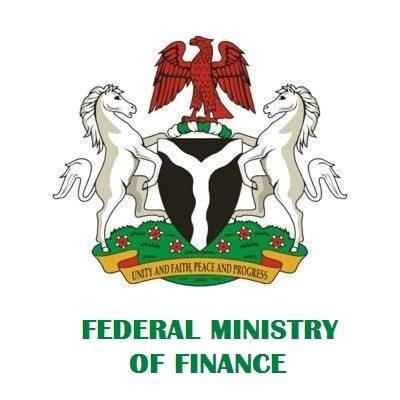
Finance Ministry hosts workshop to optimise performance of MDAs
In its avowed determination to enhance efficiency, productivity, and accountability in line with the policy thrust of the present administration, the Federal Ministry of Finance has organised a two-day sensitisation workshop on Performance Management System (PMS) for Directors and their Deputies, designed to improve productivity within the organisation.
The Honourable Minister of Finance and Co-ordinating Minister of the Economy, Wale Edun, while declaring the workshop open, stated that the event aims at equipping Directors with the knowledge and skills necessary to effectively implement and manage the Performance Management System, aligning with the Ministry’s goals and objectives.
Represented by the Permanent Secretary, Federal Ministry of Finance, Mrs Lydia Shehu Jafiya, Edun stated further that the workshop will provide a platform for Directors to share best practices, challenges, and experiences, fostering a collaborative and supportive environment.
*We are committed to enhancing the performance and effectiveness of our Directors, and this workshop is a crucial step in achieving that goal. We believe that this sensitisation will have a positive impact on the overall performance of our Ministry and ultimately benefit the citizens we serve,” he said.
Edun informed that the PMS was part of the government’s ongoing efforts to reform and modernise the public service, which he said will provide a framework for setting performance standards, monitoring progress, and evaluating the performance of officers in their various workplaces.
He explained that with the PMS, staff will be held accountable for their performance, and their appraisal will be based on clear and measurable Key Performance Indicators (KPIs). The system will also provide opportunities for training and development to ensure that staff have the necessary skills and competencies to excel in their roles.
“The PMS is expected to improve the overall performance of the public service, enhance the delivery of public services, and promote a culture of excellence and accountability,” the Minister added.
He expressed optimism that the workshop will equip Directors with the knowledge and skills necessary to implement effective strategies for optimal productivity in their respective Departments.
While charging the Directors to take the workshop seriously, as it is crucial in the realization of the Ministry’s Mandate in line with the Renewed Hope Agenda of the President Bola Ahmed Tinubu-led Administration, Edun emphasised the importance of effective performance management in enhancing accountability, transparency, and productivity in the Ministry.
He expressed his confidence that the workshop will have a positive impact on the performance of the Directors and the Ministry as a whole. The Minister encouraged the participants to be open-minded, engage actively in the discussions, and implement the knowledge and skills acquired in enhancing accountability as well as productivity in their respective Departments.
Earlier in his opening remarks, the Ministry’s Permanent Secretary Special Duties, Mr Okokon Ekanem Udo, stated that the Performance Management System has come to stay and that all staff have key roles to play in institutionalising it.
He stated further that the workshop was imperative as it provides an avenue to share ideas, knowledge, and experience in order to be on the same page regarding the implementation of the Ministry’s Performance Management.
The Permanent Secretary noted that the workshop will enable Directors and their Deputies to deeply reflect on key Result Area (KRAs), objectives and Key Performance Indicators (KPIs) of their respective Departments/Divisions with a view to restrategising to achieve desired goals in line with the Ministry’s mandate.
Speaking on behalf of Directors, the Director, Economic Research and Policy Management (ERPM), Mrs. Grace Ogbonna described PMS as a move in the right direction as it aims not only at entrenching excellent service delivery to Nigerians but also ensuring the principles of accountability, transparency and imbuement of contemporary methodologies to effectively measure, monitor and optimise our performance in fulfilling our Mandate to the nation.
She thanked the Honourable Minister of Finance and Co-ordinating Minister of the Economy, Mr Wale Edun, the Permanent Secretary, Federal Ministry of Finance, Mrs Lydia Shehu Jafiya and the Permanent Secretary, Special Duties of the Ministry of Finance, Mr Okokon Ekanem Udo, for creating an enabling environment for the successful hosting of the event.




